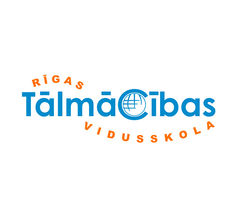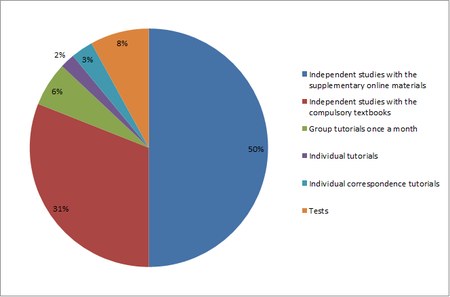Welcome to the Virtual Education Wiki ~ Open Education Wiki
Rigas Talmacibas Vidusskola
Rigas Talmacibas vidusskola (Riga Distance Education Secondary School, RTV) is a private educational institution which was established in 2009. Riga Distance Education Secondary School offers four programmes: two general secondary education programmes, elementary education programme (from grade 7 to 9) and professional development education programme. Riga Distance Education Secondary School and all the programmes are accredited for six years.
The target audience of RTV is any person, at any geographical location, who can motivate himself/herself for the self-education. Students study from compulsory textbooks and video materials, which are specifically made for students of Riga Distance Education Secondary School. Each student can use the opportunity to communicate to the teachers using Skype, but once a month they can attend full-time group tutorials.
Description
RTV was established in 2009. Thanks to the support from the Ministry of Education and Science, academic year 2009/2010 was the first one in Latvia where the acquisition of general secondary education in a form of distance education started. From the academic year 2010/2011, also elementary education is being offered.
RTV is the first distance learning school in the Baltic States that is accredited. All of the programs are accredited for the maximum time - 6 years. RTV was established because there was demand for distance education secondary education in Latvia. The main beneficiaries include people who live abroad, athletes, models, people who have not finished their studies, young mothers, business people, disabled people and students that prefer to study at a distance.
Approximate number of students in RTV is 450. However, the number of students changes every week since enrolment procedures are carried out continuously throughout the year. RTV students are from 22 different countries and cover an age group from 14 to 57 years. More than half of the students are full-time students. They are admitted based on their previous school report and start to study in a grade that they need to study in. A small part of the students are studying only those subjects that they want to improve or they have not completed in their previous school.
Riga Distance Education Secondary School teaching staff includes 29 teachers who give lectures every fourth Saturday. 20 of them also work with students on the Internet. Communication between a student and a teacher is carried out via the school’s e-study environment, Skype, phone, email or any other web-based program that both agree to use. In case a student does not want to contact a teacher directly, it is possible to ask questions via permanent staff of the school.
Pedagogy
Most of the teaching is done at homes. For example, teachers and students discuss the answers to various tasks by using Skype if that is needed or respond by sending explanations to particular questions by email. Full-time tutorials are organized according RTV’s lecturing plan. Private tutorials are also available.
Academic year is divided into 2 terms. Every term students have to do one term-ending test in every subject (except mathematics, natural sciences, the Russian language and English. In those subjects students have to do 2 tests in the second term). The grades are registered in student’s school report. To make sure that the student is ready for the test, it is possible to do small tests after every chapter. The main tools and methods include: lectures, video lectures, RTV's textbooks and tests, interactive materials in each subject (definitions, explanations, illustrations, tests), private lessons with teachers and Skype lessons.
Impact
The students of RTV differ from other school students. Majority are studying because they need this particular education (for university, employment, etc.). Although the students of RTV get less A levels (usually because they are working and are not 100% focused on studies) it does not mean that the results in general are lower. Thanks to students’ own purposefulness they get less F levels (the lowest level) in exams than other vocational secondary schools and other external schools. RTV's certificate is comparable with other physical schools in the Republic of Latvia. School graduates are students of Latvian and other EU universities. Examinations are the same as in any other secondary school in Latvia. This is only time when the students are forced to physically attend the school for approximately 2 weeks (depends on how many exams a student has chosen).
Organisation and management
RTV is acknowledged and accredited as a private school within the Latvian education system. Graduates can apply for admission in Latvian universities. Ministry of Education and Science of the Republic of Latvia, Embassy of Latvia in Ireland and United Kingdom support Riga Secondary School of Distance Education existence.
RTV is a private school with private finances. But Ministry of Education and Science of the Republic of Latvia provides the support for salaries of teachers. Private funding from student fees. Support is provided from the state to pay for the salaries of teachers. There are discounts for students from same families. RTV does not charge disabled people. Approximately one student pays 500LVL (about 700 EUR), some pay less, some more, it depends on every individual - how much they still need to do and what they have already done. The charge includes study materials (books, video lectures, tests, etc), taxes, rents, technologies for study process, etc.
Sustainability and transferability
RTV has many students in the United Kingdom and Ireland. The future aim is to gain support from Ministry of Education and Science of the Republic of Latvia to allow organizing exams in the Embassy of Latvia in Ireland and the United Kingdom preventing students from these countries flying to Latvia for exams at the end of the school year.
Further information
Rigas Talmacibas Vidusskola (in English)

